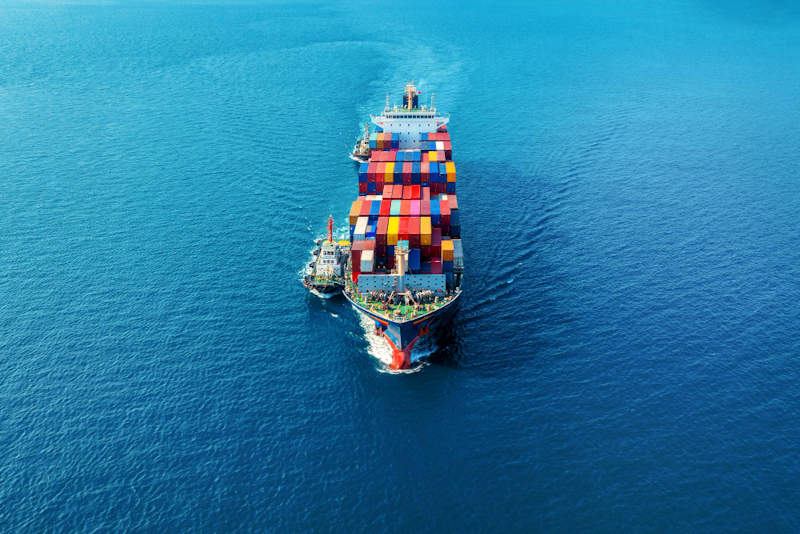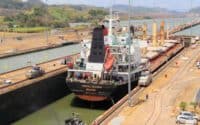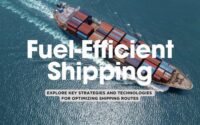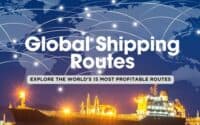Sea of Choices – A Quick Guide to Commercial Vessel Tracking

The Evolution of Vessel Tracking: From Stars to Satellites
Historically, mariners relied on celestial navigation, using stars and other celestial bodies to determine their position at sea. As technology evolved, so did the methods of tracking. The introduction of the compass, marine chronometer, and later the radio, revolutionized maritime navigation.
* Please send feedback/suggestions to editor @ shipuniverse.com
In recent decades, technology has provided even more advanced tools. Systems like LORAN (Long Range Navigation) were a significant leap forward, but it was the introduction of GPS (Global Positioning System) that truly changed the game. Now, ship owners have access to real-time data about their vessels’ exact positions anywhere in the world.
Further enhancements, such as the Automatic Identification System (AIS) and Vessel Monitoring Systems (VMS), offer not only positional data but also critical information about ship status, nearby vessels, and potential hazards. As we progress, technologies continue to integrate, providing ship owners with unparalleled insights into their fleet’s operations.
Why Commercial Vessel Tracking is Crucial: Beyond Location
- Safety and Security: In the vastness of the oceans, unforeseen hazards can pose significant risks. Advanced tracking systems allow for real-time monitoring, ensuring ships can navigate around storms, avoid obstacles, and steer clear of potentially dangerous areas. Moreover, in the unfortunate event of incidents like piracy, a ship’s location can be tracked, facilitating faster response and resolution.
- Operational Efficiency: For ship owners, time is money. Delays can be costly. By constantly monitoring a vessel’s position, route optimizations can be made, ensuring timely arrivals and minimizing fuel consumption. Additionally, with the advent of port congestion in many parts of the world, having an accurate Estimated Time of Arrival (ETA) allows for better port planning.
- Regulatory Compliance: Maritime regulations have become more stringent over the years, with bodies like the International Maritime Organization (IMO) setting strict standards for vessel operations. Proper vessel tracking ensures that ships comply with designated routes, especially in environmentally sensitive areas or busy shipping lanes, thus avoiding potential fines or sanctions.
Types of Commercial Vessel Tracking Systems
Automatic Identification System (AIS):
Introduced by the International Maritime Organization (IMO), AIS is primarily a collision avoidance system. Vessels equipped with AIS transceivers broadcast critical information, such as their position, speed, and navigational status, to other nearby ships and AIS base stations located along coastlines.
- Advantages: Real-time data, enhances marine safety, widely adopted globally.
- Limitations: Limited range, especially in open sea, and can be turned off manually, limiting its effectiveness in certain scenarios.
Vessel Monitoring Systems (VMS):
Used predominantly by national fisheries departments, VMS allows for the monitoring of fishing vessels, ensuring they operate within permitted areas and adhere to fishing quotas.
- Advantages: Helps in regulatory compliance, critical for sustainable fisheries management.
- Limitations: Primarily designed for fishing vessels, not suitable for all commercial vessels.
Satellite-based Tracking:
Using satellites, vessels can be tracked anywhere in the world, irrespective of their distance from the coast. This is especially beneficial for ships operating in the deep sea.
- Advantages: Global coverage, not restricted by range, constant monitoring.
- Limitations: Can be more expensive, dependent on satellite network reliability.
Long Range Identification and Tracking (LRIT):
Mandated by the IMO, LRIT provides information about the ship’s identity and location. It’s designed for use by government entities, search and rescue organizations, and others entitled to receive the data.
- Advantages: Enhances maritime security, promotes regulatory compliance.
- Limitations: Not designed for real-time collision avoidance or operational fleet management.
Key Features to Consider When Choosing a Vessel Tracking System
Real-time Monitoring:
For ship owners, having access to real-time data can be a game-changer. It allows for immediate decision-making, whether it’s route alteration due to weather conditions or responding to emergency situations.
Historical Data and Analytics:
Being able to assess historical data can offer insights into vessel performance, fuel consumption patterns, and route efficiencies. This data is invaluable for long-term planning and optimizing operational strategies.
Integration Capabilities:
A vessel tracking system that can seamlessly integrate with other maritime software or systems, such as weather forecasting tools or fleet management software, can enhance the efficiency of maritime operations.
Geofencing:
This feature allows ship owners to set virtual boundaries. When a vessel enters or exits these predefined zones, notifications are sent. This is especially useful in ensuring vessels do not enter restricted areas or to monitor their entry and exit from ports.
User-friendly Interface:
An intuitive, user-friendly interface ensures that ship crews and land-based staff can quickly understand and use the tracking system to its full potential without steep learning curves.
Cost-effectiveness and Scalability:
While initial investment is a consideration, ship owners should also look at the long-term benefits and the system’s scalability. As the fleet grows or operations change, the system should be adaptable without incurring exorbitant upgrade costs.
Potential Challenges and Solutions in Vessel Tracking
Data Privacy and Security:
- Challenge: As vessel tracking systems become increasingly interconnected with other maritime software and tools, the risk of data breaches or cyber-attacks rises.
- Solution: Regularly updating software, implementing multi-layered cybersecurity measures, and employee training on best cybersecurity practices.
System Reliability and “Blind Spots”:
- Challenge: Some regions, especially in remote parts of the oceans, might offer weaker tracking signals or might be underserved by satellite networks.
- Solution: Investing in hybrid tracking systems that can switch between satellite and terrestrial signals or utilizing multiple satellite networks to ensure coverage.
Regulatory Compliance:
- Challenge: With maritime regulations constantly evolving, keeping tracking systems compliant can be daunting.
- Solution: Regularly consulting with maritime regulatory bodies, and possibly investing in tracking solutions that offer updates or adaptability in line with regulatory changes.
The Future of Commercial Vessel Tracking
Integration with AI and Machine Learning:
Future vessel tracking systems will likely incorporate AI to predict routes more efficiently, optimize fuel consumption, and even foresee maintenance needs based on data trends.
Sustainability and Environmental Monitoring:
With the increasing focus on environmental protection, future tracking systems might integrate environmental data, helping ships navigate away from vulnerable marine ecosystems or detect oil spills in real-time.
Standardized Global Systems:
As trade becomes more globalized, there might be a move towards more standardized tracking systems, ensuring that vessels from different parts of the world can communicate and share data seamlessly.
The maritime industry, with its vastness and unpredictability, requires robust tools to ensure safety, efficiency, and compliance. Vessel tracking, far from being a mere tool, is a cornerstone of modern maritime operations. Its importance will only grow as technology advances and the demands of global trade evolve. Ship owners are not only investing in a system; they are investing in the future of their operations.
Additional Resources
Regulatory Guidelines and Updates:
- International Maritime Organization (IMO)
- European Maritime Safety Agency (EMSA)
- Federal Maritime Commission (FMC) – USA
- Maritime and Port Authority of Singapore (MPA)
- Australian Maritime Safety Authority (AMSA)
Vessel Tracking Providers

Do you have a Maritime Product or Service that may be of interest to Shipowners? Tell us about it here!
Do you have feedback or insights? Please reach out to editor @ shipuniverse.com



